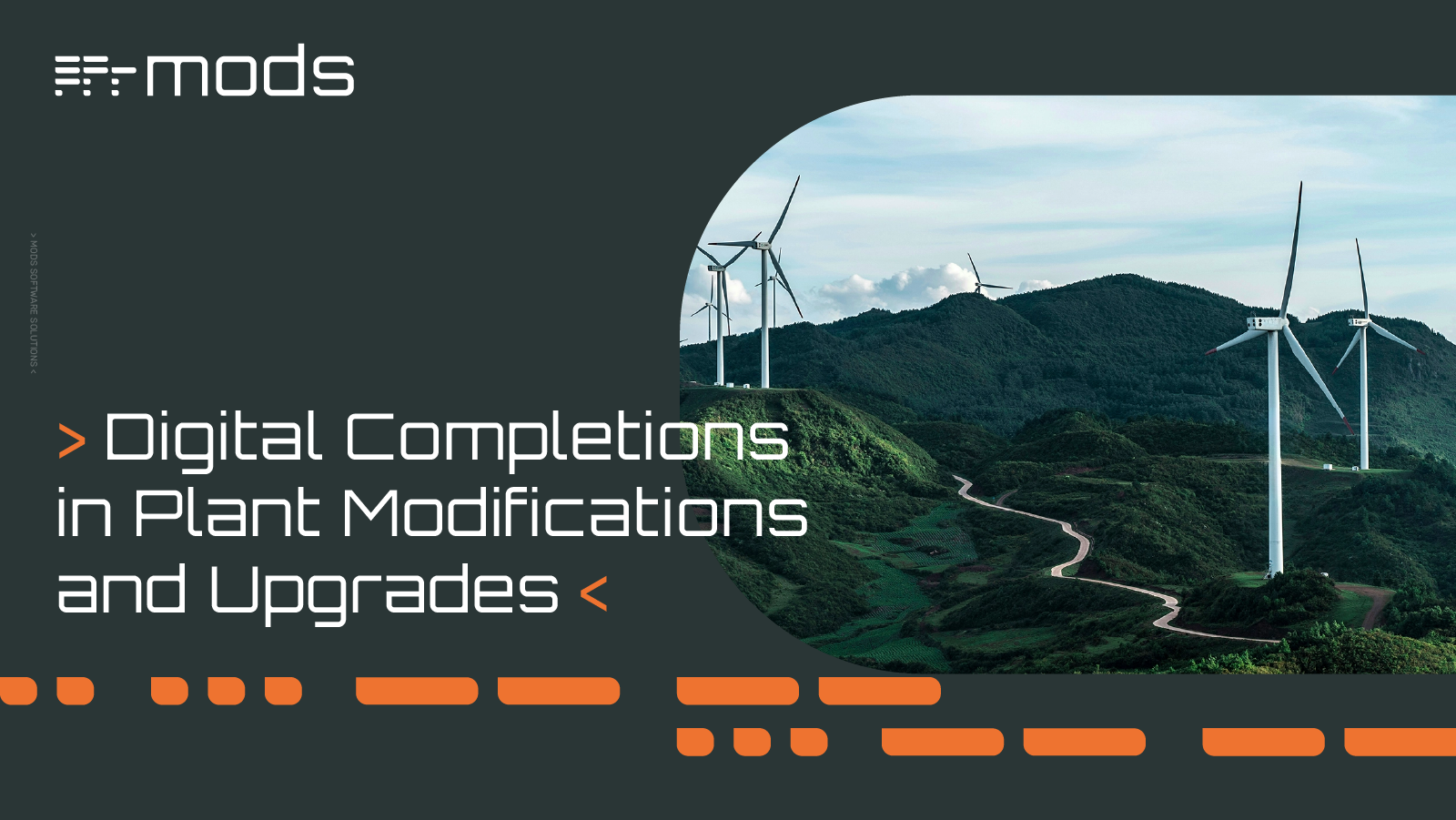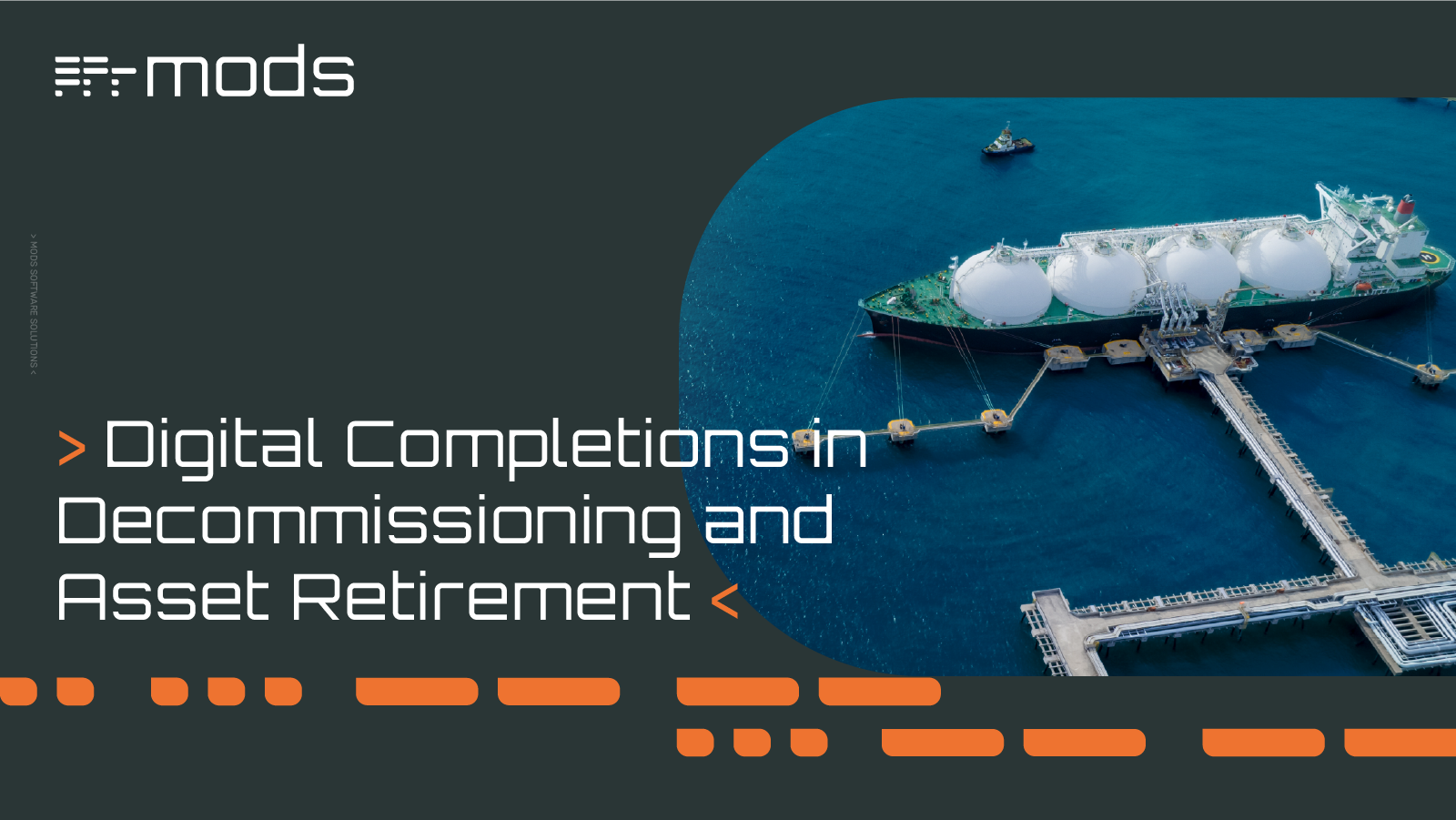Digital Completions in Plant Modifications and Upgrades
Unlike greenfield or any new build construction projects, plant modifications and upgrades present a unique set of challenges. Work is carried out...

There are many online articles dedicated to digitalization in the Energy sector covering a range of technologies, from artificial intelligence and deep machine learning all the way through to advanced automation and the development of blockchain. Technology is transforming our lives and professional careers - a fact that cannot be denied.
Digital technology has changed our lives from online shopping at home, to the supply chain at work. Innovations and advancements in trends such as Cloud, Big data, analytics, augmented reality, and virtual reality are all now accessible due to the increase in scale tied in with the reduction in hardware cost. In the industrial world, how we consider our companies' digital journey and our own is not dissimilar. The decision to roll-out new technology across an organization is determined by cost and the most difficult choice of ‘which tech’ is the right one to choose?’.
In today’s world, you can digitize almost anything. However, selecting the right technology, ensuring that it is useful, adaptive, and user-friendly, is a high priority for companies contemplating digital transformation. Technology is a tool that can revolutionize businesses, helping them increase their income and improve the value chain all while reducing costs.
While the Industrial sector was perhaps the first to start using technology, it is true to say that it is one of the last to use it at scale. This fact is surprising especially when you consider the areas where technology can reduce spend and drive a better outcome. The opportunity to lower costs, improve safety and increase flexibility is one companies really should be chasing to ensure future viability in the market. Technology disrupts the industrial world; what businesses need to know now is who are the right people to help them adopt a scaled technology succession plan.
At MODS, we work alongside organizations at the frontline of Energy sector projects and are committed to developing their best practices using the latest technology. We are often asked why digital transformation is so significant? And the answer is simple; businesses are at a critical point where they need to find cost-reducing benefits and seek a more advanced technology-based process to bring better financial performance. The solution seems simple, but organizations are still hesitant to dive into digital transformation wholeheartedly although they do acknowledge the benefits of increased efficiency and profitability.
Current travel restrictions due to the global pandemic challenged companies to find solutions to maintain their operations which accelerated their digital journey in the workplace and for their workers at home. The demand to ‘do more with less’ was supplied by the use of technology whether it was a way of saving on travel by remote conferencing, removing paper-based processes, or activating small specialist teams with only one person on site. The COVID 19 epidemic may have delivered untold disaster across the world but it did accelerate the uptake of digital solutions to maintain business operations.
The short-term fix during pandemic restrictions certainly helped leaders buy-in to the long-term benefits digital technology brings to a company’s operations. What stops them taking the final step, will be no surprise to hear, is the combined concerns of a large CAPEX and anxiety over the choice of digital solution.
Digital tools prove their worth when they take people out of harm's way and make the operating processes fundamentally safer. Going digital allows you to work process end to end and take out system bottlenecks. And it has been proven that digital technology saves large amounts of time in labor costs and overall schedules; what management team would not be on board with this?
Granted, we are in an era of spend that can be reduced by digital technology but how does a leader help their organization embrace new technology and future changes? One palatable, bite-sized way is to sponsor or pilot a digital project that fits your corporate agenda and challenge this project to deliver a positive, quantifiable outcome. In the Energy sector, for example, it could be digitalizing your next Turnarounds to budget in at a lower cost. Your digital solution may help visualize data and the reality of the work needed to be completed; the result may reduce a forty-day shutdown project by more than twenty percent. It is this return on investment, tangible results such as increased efficiency and reduction in time and money that will help organizations take that sigh of relief after their deliberation to go digital.
Finding a trusted technology partner who is supportive and collaborative while delivering best practices is critical to helping leaders extend budgets within their organization. Digital technology changes how we think, and companies are making incredibly high demands from their digital investment. Software solutions need to be fast to deliver, fast to show value, flexible, and have the ability to integrate with your existing systems. There also must be an option for a billing system that can be switched on or off, allowing business value to be delivered when you need it. But does this ‘unicorn-like’ solution with all these attributes exist? Actually, yes! MODS is unique in offering all these attributes and more.
MODS creates industrial software for Energy projects. For more than a decade, this software solution provider has proven their products’ success by working closely with customers, refining and evolving their systems and delivering on their promises. As their team has knowledge and experience of the Energy sector, their understanding of daily processes and issues helps empower workers to embrace the digital change taking them on their next steps to a more agile, digital future in the office home or field.
To quote Walt Disney; ‘Times and conditions change so rapidly that we must keep our aim constantly focused on the future’. It is true to say that the only sure thing is change, the workforce, the operating environment even the political context. All of us are continually challenging ourselves to think and rethink therefore flexibility is high on the agenda of requirements when choosing a software solution. People and businesses need to move away from believing they need to have a digital checklist, to something that can evolve as they digitally transform. A software solution that is online, is mobile, that can be taken out to the field, and has the ability to track planning and actions from start to finish with reliability.
Digital transformation should no longer be a ‘push’ from the technology provider rather a ‘pull’ from the industry itself. Pressure from Operators generates the need to extract the best business value by using technology. Many Software companies are fighting hard to catch up with a huge appetite for new, more affordable technologies; it is an exciting time as the Energy industry is now poised to drive the technology revolution at full speed.
Leaders are becoming more aware of the need to challenge current business practices and their own way of thinking. The rapid development of technology and insatiable demand for efficiency and cost saving, means that teaming up with a software solution provider that is dynamic, flexible, collaborative and above all innovative, will surely result in a perfect partner in an ever-changing digital future.
Want to know more about digital transformation? Go check out our Digital transformation - everything you need to know.
Looking for the right digital technology partner? Have a talk with our  and check if we can help your project.
and check if we can help your project.

Unlike greenfield or any new build construction projects, plant modifications and upgrades present a unique set of challenges. Work is carried out...

Turnarounds and shutdowns are among the most critical—and stressful—phases in the management and operation of industrial assets. These planned...

Offshore decommissioning and asset retirement present significant logistical, regulatory, safety, fiscal and reputational challenges. The process of...

If the COVID-19 pandemic has taught us anything, it’s that businesses must be able to function remotely. Industrial sectors may be more reticent to...

“Mobile is becoming not only the new digital hub, but also the bridge to the physical world. That’s why mobile will affect more than just your...

The Global Pandemic has brought with it, death, devastating life changes and a myriad of workplace changes. The Energy industry did not escape the...